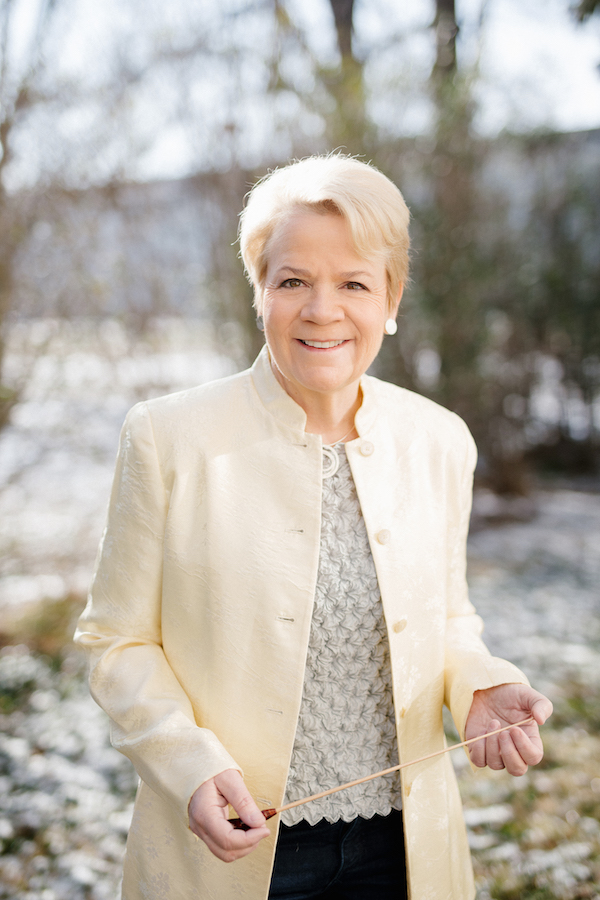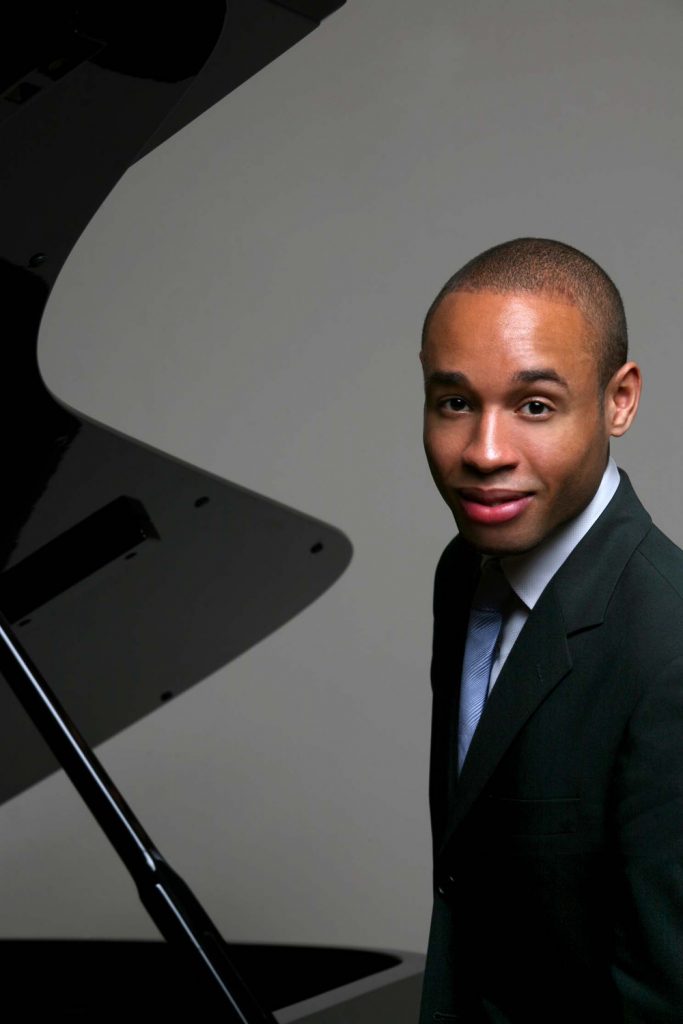Alsop leads New World Symphony in a whirlwind “Scheherazade”

Rimsky-Korsakov’s Scheherazade may be an overplayed warhorse but it still manages to thrill if rendered with artistry and sonic impact.
The New World Symphony under the baton of Marin Alsop delivered that and more on Friday night at the New World Center in Miami Beach. Alsop has been absent from the New World’s conducting roster for too long. Her ability to draw the best from the players and mold vivid, high-energy performances was palpable in the Russian showpiece as well as a new edition of an iconic Gershwin score.
The first brass exclamation in Scheherazade was emphatic and Alsop never let the surging momentum flag over the work’s nearly fifty-minute span. Her taut approach infused hair-trigger tension into this technicolor musical depiction of the Arabian Nights. The turbulence of “The Sea and Sinbad’s Ship” was projected with visceral force. “The Kalendar Prince” can easily become diffuse and episodic but Alsop’s crisp direction maintained excitement at fever pitch. Concertmaster Michael Turkell faced the audience, rather than looking at the score, during his many solos. His agile technique and liquid tone perfectly encompassed the voice of the heroine as she beguiled the Sultan with exotic tales. The winds excelled in the colorful thematic writing.
In “The Young Prince and The Young Princes,” the full and resonant string sonority potently captured Alsop’s highlighting of the Oriental coloration in the principal melody. The changes of tempo in the central episode were well integrated, the movement flowing in sensual hues. Alsop turned the “Festival at Bagdad” into a whirlwind of fierce energy and instrumental brilliance. With five horns, three trombones, two trumpets and tuba making a mighty sound, the final destruction of the ship rocked the hall. Alsop shaped the coda in poetic lines, a soft and gentle conclusion to a performance that brought freshness to the most familiar pages. The entire ensemble was in top form but Claire Bradford’s numerous cello solos, assayed with beauty of tone and musical line, took special honors.
The scores utilized for Gershwin’s works have long been problematic. Over two decades ago, New World artistic director Michael Tilson Thomas discovered that the publisher of Gershwin’s Second Rhapsody had seriously altered the score, removing the work’s dissonance and originality. Many of the other Gershwin scores are plagued by errors and fixes or revisions. The Gershwin estate and the University of Michigan are collaborating on a new edition that will be faithful to the composer’s manuscripts.
Pianist Aaron Diehl and Alsop presented the first American performance of a newly cleansed version of the Concerto in F Major, edited by Timothy D. Freeze.
The work certainly sounded fresh. Alsop produced a leaner, tighter corporate blend, with much of the string sound trimmed down, modified and even expunged. Diehl, a keyboard artist who encompasses both the classical and jazz worlds, brought aplomb and idiomatic fluency to the outer movements. He has technique to burn and, in the second movement, could play with rhapsodic sweep when called for. The incisive thrust and percussive swing of the finale infused new vitality and virtuosity into Gershwin’s only bona fide concerto.
While writing the concerto, Gershwin studied orchestration and the work was his first effort at doing his own scoring. With this new edition, his work emerged even more remarkably assured. Morgen Low’s muted trumpet solo in the second movement had just the right bluesy vibe. Alsop brought out inner details of the outer movements, leading with rhythmic snap and zest. She made the varied melodies of the second movement sing while drawing first-rate playing from all sections of the ensemble. Clearly Alsop had a strong rapport with the players and she should return to the New World podium soon.
Conducting fellow Chad Goodman opened the program with Masquerade by Anna Clyne. The British composer is highly talented and has written some fine works but this is not one of them.
Based on the drinking song “Juice of Barley,” the 2013 score is a superficial crowd pleaser in a loud, raucous manner. There is more sound and fury than substance in this eight-minute overture. Goodman made the best case for the vignette, skillfully gauging volume and tonal variety from the orchestra.
The New World Symphony repeats the program 7:30 p.m. Saturday at the New World Center in Miami Beach and 8 p.m. Sunday at the Kravis Center in West Palm Beach. nws.edukravis.org
Posted in Performances
Leave a Comment
Sat Dec 11, 2021
at 12:47 pm
No Comments
